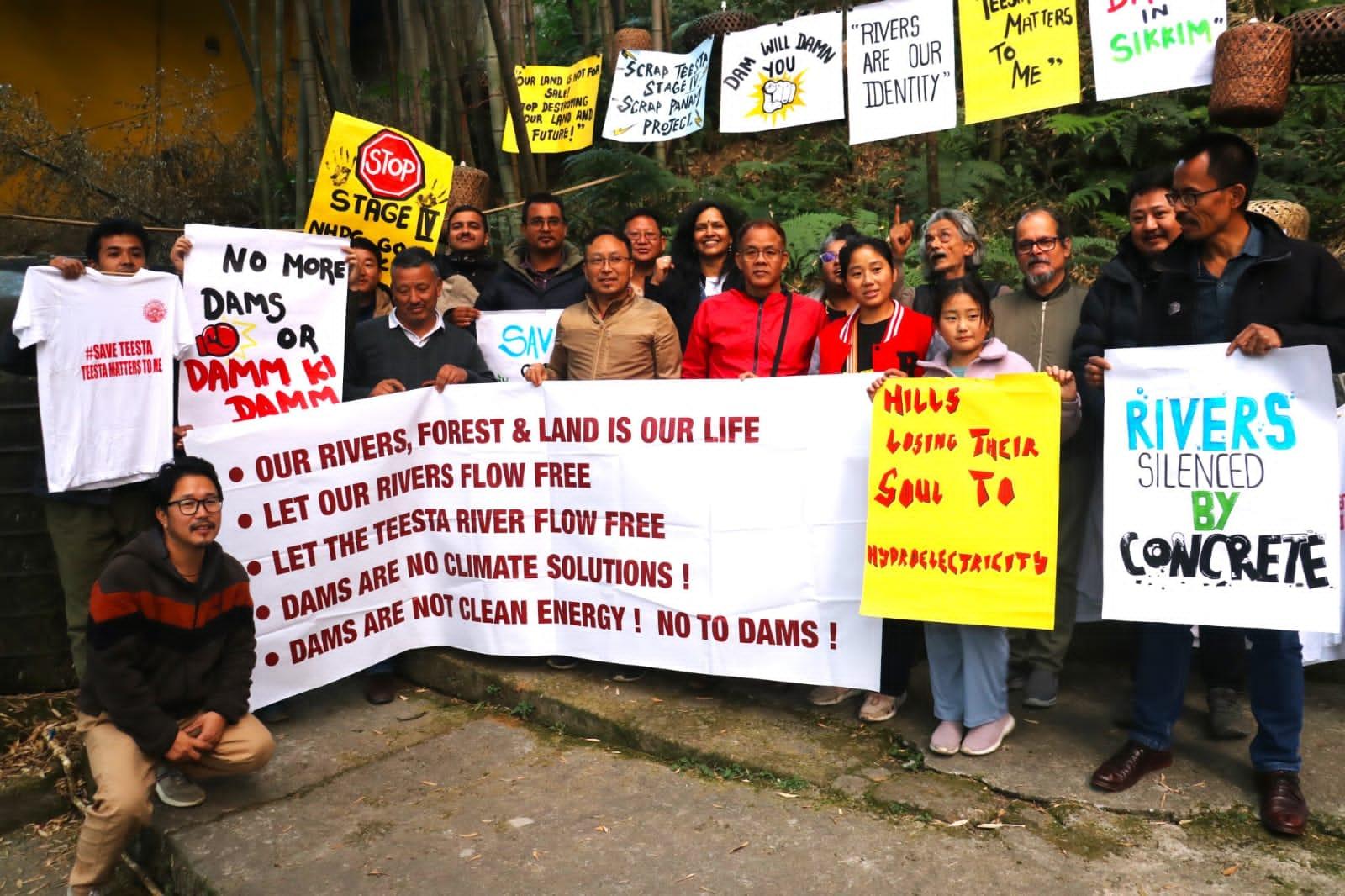
"We recognize the intrinsic rights of rivers to flow freely and the vital relationship between indigenous communities and their natural resources," emphasized a spokesperson from the conference.
The Teesta Declaration outlined pressing concerns regarding the construction of large dams in the region, highlighting the environmental, social, and climatic impacts. Participants vehemently opposed the continuation of projects such as the 1200 MW Teesta III dam in Sikkim and urged for its decommissioning, citing the catastrophic burst of the dam on October 4, 2023, which resulted in loss of lives and extensive property damage.
The declaration emphasized the necessity of halting future dam projects, including the proposed 520 MW Teesta IV dam in Sikkim, the 3097 MW Etalin dam in Arunachal Pradesh, and the 190 MW Pabram Dam in Manipur, citing concerns over climate change-induced disasters like glacial lake outbursts and landslides.
"Large dams, falsely labeled as green and sustainable, exacerbate the climate crisis and disrupt fragile ecosystems," asserted a participant at the conference.
The gathering also condemned the financing of these projects by international financial institutions and multinational companies, holding them accountable for environmental degradation and societal impacts.
"We call for sustainable energy solutions that respect the rights of indigenous communities and emphasize the intrinsic value of our rivers and mountains," stated another participant.
The declaration concluded with an urgent call for comprehensive policies rooted in community rights and environmental protection to safeguard the natural heritage of North East India.
The Teesta Declaration serves as a unified voice advocating for the preservation of free-flowing rivers, emphasizing the necessity of responsible and sustainable development to protect the region's delicate ecosystems and cultural heritage.




Add new comment